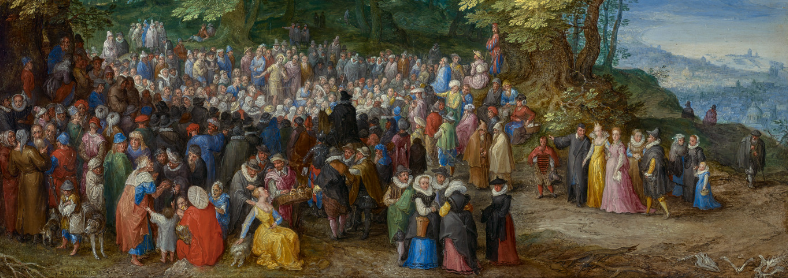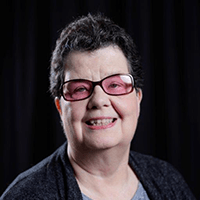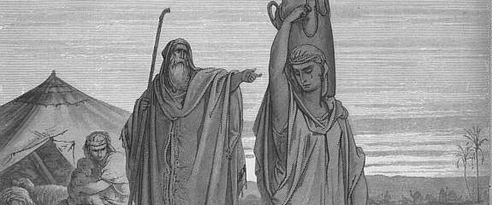Dr. Margaret Dunn is an ordained minister in the Church of God. She is serving at Mid America Christian University as an adjunct instructor and at Parkgate Community Church as a learning hour teacher for 3rd-5th grade students, a prayer partner, and a member of the missions team. She has been a member of leadership teams for the Church of God on the state and national level and was a member of the planning team for the 3rd, 4th, and 5th WHWC conferences. She lives in Pasadena, Texas.
Dorcas: Women of Faith Series
Rev. Dr. Margaret Dunn • January 18, 2022 | WHWC
A Story of a Faith Community in Action as She Loved God, Loved Others, and Was Loved by Others
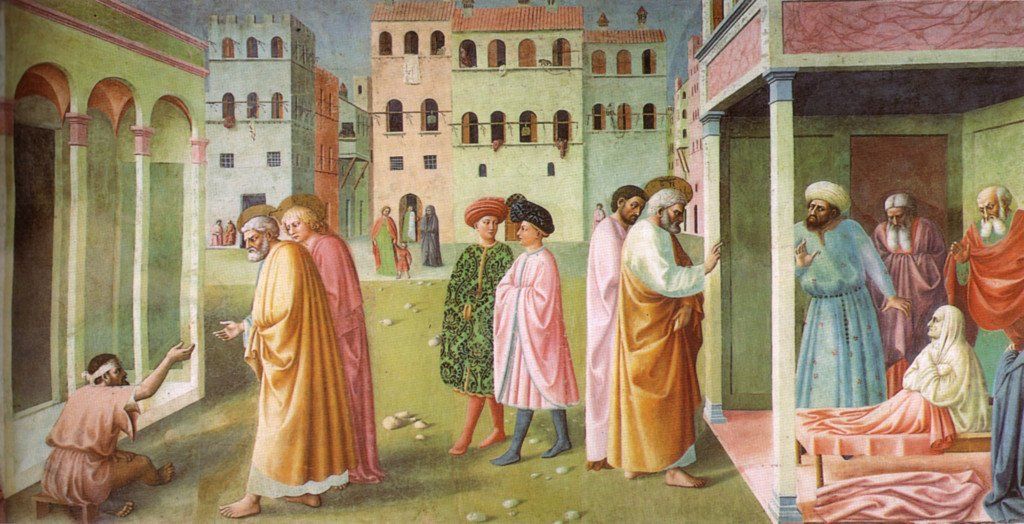
In his sermon on Sunday September 5, 2021, Pastor Jim Snyder (Blue Mountain Community Church in Walla Walla, Washington) stirred me to think deeply about the importance of community. He said, “Community is the laboratory where our faith is tested. It is in a community that our faith’s effectiveness is measured. “ (Doing Community Well Week One Sermon https://www.youtube.com/channel/UCkYciEuFEwkMWa72Y-AhJPQ)
My ponderments took me to the life of Dorcas in the Book of Acts and to consider if Dorcas’ life illustrates this concept and how to apply the discovered concepts to our lives — here is her story:
36 Now there was at Joppa a disciple named Tabitha, which means Dorcas.[a] She was full of good works and acts of charity. 37 In those days she fell sick and died; and when they had washed her, they laid her in an upper room. 38 Since Lydda was near Joppa, the disciples, hearing that Peter was there, sent two men to him entreating him, “Please come to us without delay.” 39 So Peter rose and went with them. And when he had come, they took him to the upper room. All the widows stood beside him weeping and showing tunics and other garments which Dorcas made while she was with them. 40 But Peter put them all outside and knelt down and prayed; then turning to the body he said, “Tabitha, rise.” And she opened her eyes, and when she saw Peter she sat up. 41 And he gave her his hand and lifted her up. Then calling the saints and widows he presented her alive. 42 And it became known throughout all Joppa, and many believed in the Lord. 43 And he stayed in Joppa for many days with one Simon, a tanner. Acts 9:36 – 43 (RSV)
At the end of Acts 9, we find the story of Dorcas (Greek) or Tabitha (Aramaic) for clarity’s sake, in this post, I will refer to her as Dorcas. This is the only place she is mentioned in the New Testament. Luke records this story after Saul’s conversion and Peter’s healing of a man in Lydda. Dorcas resided in Joppa, a city about 22 kilometers or 14 miles from Lydda. As this map shows, Lydda was inland and Joppa was a seaport on the coast. (https://bibleatlas.org/full/lydda.htm) Today, Joppa is known as Jaffa. From Dorcas’ story, we can learn much about discipleship but also much about community.
Dorcas Identified as a Disciple in Her Community
First, one must note that Dorcas is identified as a disciple of Jesus Christ (v.36). This is the feminine form of the word used for disciple used in the Gospels and elsewhere in Acts. She is the only woman in the New Testament identified as a disciple. (https://margmowczko.com/tabitha-dorcas-disciple-acts-9/).
Vine’s Expository Dictionary of the New Testament indicates that a disciple is more than just a learner, a disciple imitates her teacher. Dorcas was known by her community as living out the love of Christ to those in the community. Mowczko suggests this is because she was an important member of the Christian community and that possibly the church met in her home.
Dorcas Demonstrates Love for Her Community
Being a disciple who imitated Christ in her community brings us to the second description of Dorcas. She “was full of good works and charity” (v. 37). This means she cared for those in her community. She cared for others and loved them. She put the words “love your neighbor as you love yourself” into action inside her community. She made them garments and tunics. This means that she was meeting their basic need for clothing.
After her death, the community acted.
- Dorcas was washed and laid in an upper room (v. 37). The body was not anointed for burial, it was washed. Those who washed her body had no intention of burying her but they had faith she could be resurrected (healed).
- Others, upon hearing that Peter was in Lydda, sent two men to retrieve him (v. 38). This is a short distance with the conveniences of modern transit but would have taken at least a day for him to make the journey to Lydda and back.
- Peter came to Joppa without delay (v. 38). supporting the importance of Dorcas to the Christian community in Joppa and to the surrounding Christian communities.
- A group of weeping widows met Peter and showed him all the garments that Dorcas had made for the poor (v. 39).
Peter put everyone outside and prayed and Dorcas was miraculously healed. Peter presented her alive to her community. After the healing many believed in the Lord. (v. 41). These actions show that Dorcas not only loved her community, but she was also loved by its members.
Dorcas’ Community as A Laboratory of Faith
In their move to action, the community around Dorcas showed their faith in God to heal Dorcas. Note that they washed but did not anoint her, they sent for Peter, and they did as Peter asked when he arrived. The community’s love for Dorcas and her place in the community stirred the entire community to exercise their faith. They did not just talk about it, they lived it out.
In their actions, the community also demonstrated that everyone has a part in carrying out a mission. The mission in this case was getting Peter so he could pray for her healing. Look again at the actions of the community—not everyone did the same thing, yet each one did something. As each person acted, each person believed that Dorcas would be healed and she was. Note the final result—many believed in the Lord.
Questions for Reflection
As I listened to my friend’s sermon and re-read the story of Dorcas, I discovered that Dorcas' story does demonstrate that community is a laboratory of faith. It is the community that reflects the effectiveness of my faith and where my faith can be lived out in service and love for others. How it will be lived out will depend on the members of the community and what is needed by those we are serving.
I am left pondering these questions.
- Who are the members of my community?
- To what communities do I belong?
- Who are the members of the communities I am a part of?
- What is the mission of each of these communities?
- How do I contribute and how should I contribute to each community?
- Do the communities to which I belong bring glory to God and lead others to Christ?
Dorcas was not alone in her service to the widows and needy in her community. She lived a life of faith not just in words, but in actions. As a disciple she sought to imitate Christ. Is this my goal? Some things to ponder from the life and short account of Dorcas’ life.
References
https://margmowczko.com/tabitha-dorcas-disciple-acts-9/
https://www.blueletterbible.org/search/dictionary/viewtopic.cfm?topic=VT0000751
Snyder, Jim (2021) Doing Community Well Week One Sermon https://www.youtube.com/channel/UCkYciEuFEwkMWa72Y-AhJPQ
Portrait: Masolino (1425), Peter Heals the Crippled and Raises Tabitha, fresco (255 × 598 cm) Brancacci Chapel, Santa Maria del Carmine, Florence.
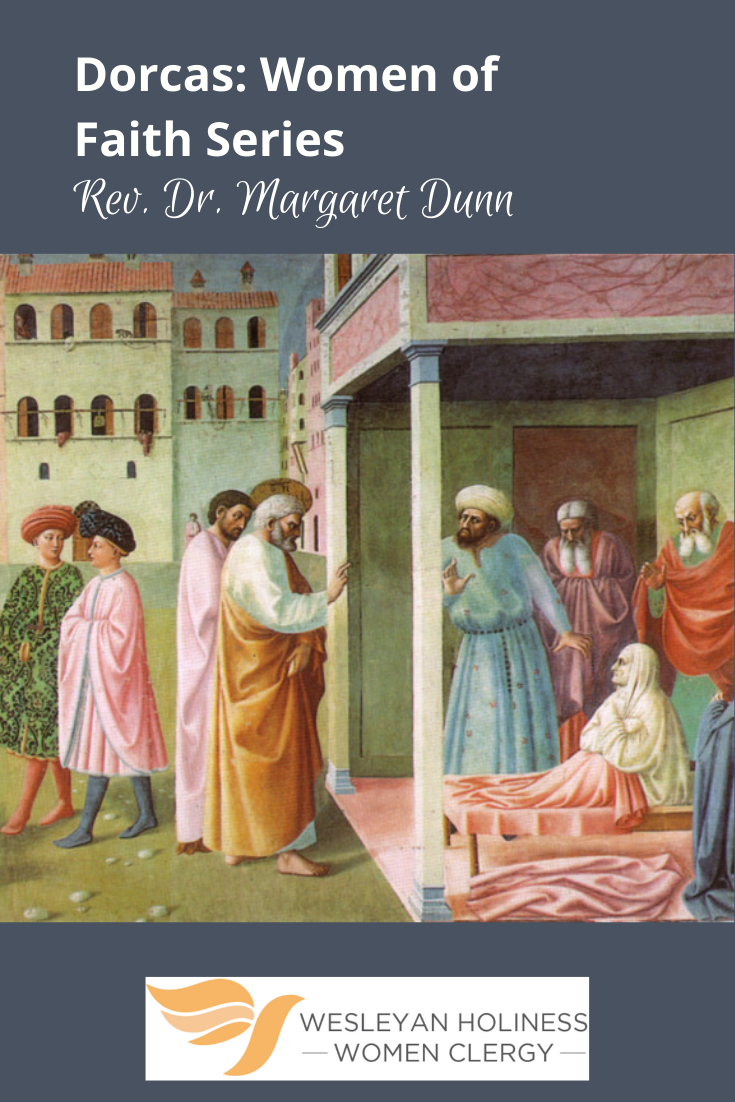
Enjoyed this article? Connect with us on one of our social media platforms. Share it and forward it to a friend:

